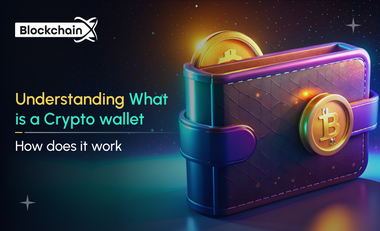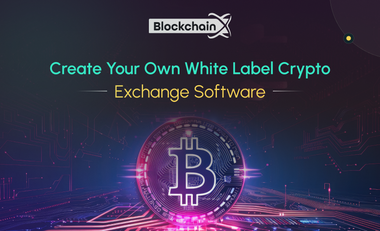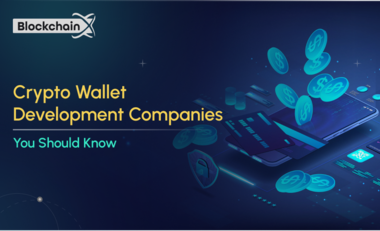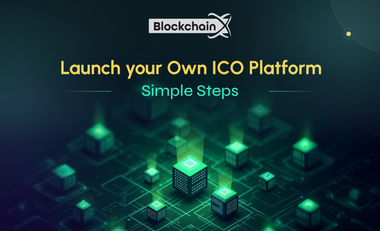




































Blockchain Fork Development Company
As your Blockchain fork development company we specialize in creating custom network features alongside our soft fork and hard fork development. We help you customize protocols tailored to your blockchain network and bring in new features and functionalities. Also, update the consensus mechanism and provide transitioning services, cross-network development, and more. With our expertise in decentralized development, we are open to providing any extended services for your blockchain ensuring its functionality, features, efficiency, and security are upskilled to be better.
Decentralized Cloud Infrastructure
Leveraging on Blockchain technology we develop decentralized cloud infrastructure providing security, efficiency, and distributed computing storage and network services. Unlike traditional centralized cloud systems, they use nodes to ensure resilience, transparency, and privacy supporting diverse applications, file storage, and data processing.
Blockchain Node Development
These Blockchain nodes are the backbone of decentralized networks which are responsible for validating transactions, storing ledger data, maintaining network integrity, and more. The process of Node development involves creating a very strong, scalable, fault-tolerant system, empowering blockchain-based cloud services.
Native Coin Development
Native coins are the transactional currency in the decentralized infrastructure connecting networks, allowing payments to happen across platforms, incentivizing participation, facilitating governance, and doing much more. Native Coin development includes tokenomics planning, and creating secured and salable crypto tokens for your network.
Consensus Mechanism Development
The consensus mechanism makes sure the agreements among the nodes validate the transaction happening in the network. We help you develop different consensus forms Proof of stake, Proof of history, Proof of work, delegated proof of stake, and many more optimized with decentralization, scalability, and energy efficiency.
Requirement Analysis
We at BlockchainX collaborate with clients first to understand their requirements and goals and get insights on what new features, aspects, etc can be added. We assess technical and business requirements for better clarity.
Consensus Mechanism & Protocol Planning
Based on the need we decide on what kind of fork can be implemented and work on providing upgrades accordingly. This will help in choosing the consensus mechanism for the blockchain fork integrations.
Custom Development
We at BlockchainX modify the source code of the existing blockchain based on the requirement to incorporate new functionalities, protocol upgrades, or governance mechanisms. We customize your needs.
Testing & Validation
Then we test the forked blockchain through extensive testing in different metaverse environments like a sandbox to ensure that the network is stable, secured, and can perform as expected before launch.
Deployment
We then deploy the forked blockchain on the mainnet. If it's a hard fork, we ensure smooth token migrations, assist in community onboarding, and much more. In the case of Soft fork, we support on a need basis.
Post-Launch Support
We are also up to provide post-launch support for your Fork and ensure there is a good flow in operations, with security, transparency and efficiency that contributes towards the progress of your business.

Ethereum Fork Development

Tron Fork Development

Binance Smart Chain Fork Development

Polkadot Fork

Cosmos Fork

Solana Fork

Polygon Fork

Avalanche Fork

Tezos Fork

Hedera Fork

Near Fork

WAX Fork

Protocol Improvements
Forks complement protocol upgrades, enhancing scalability, and transaction speed, and put together overall blockchain efficiency without disturbing the existing network.

Community-Driven Evolution
Blockchain Forks as they reflect community decisions, enable participants to vote on new directions and ensure the blockchain evolution is collective.

Enhanced Features
It provides opportunities for new functionalities, like smart contract capabilities, and enhanced privacy features, and caters to emerging demands.

Bug Fixes and Security Upgrades
Forks seal vulnerabilities and implement stronger security measures, this protects the network against exploitation and enhances reliability.

Governance Model Refinement
By introducing new governance models, blockchain forks reassures on improved decentralization, transparency, and adaptability in decision-making processes.

New Use Case Exploration
Forks makes the creation of specialized blockchains easy for unique applications, such as NFTs, DeFi, Supply chain solutions, and the rest.

Token Distribution Adjustment
Blockchain fork can redistribute tokens addressing disparities and align with blockchain's updated economic model that fosters inclusivity and fairness.

Consensus Mechanism Optimization
Blockchain Forks allow network shifts, making it more efficient through eco-friendly consensus algorithms, and help in transitioning from Proof of Work to Proof of Stake.

Soft Fork
A soft fork is a backward-compatible upgrade to the blockchain. Nodes that haven’t been updated can still process transactions, but certain features might be restricted. Soft forks are commonly used for minor upgrades or introducing optional rules, such as SegWit in Bitcoin.

Hard Fork
A hard fork is a non-backward-compatible split in the blockchain, creating two separate versions of the chain. This occurs when significant changes are made to the blockchain protocol, requiring all nodes to upgrade. Hard forks are used for introducing major changes, creating new chains (e.g., Ethereum and Ethereum Classic), or resolving disputes.

Temporary Fork / Accidental Fork
This occurs when two miners find blocks simultaneously, creating a temporary split in the blockchain. These forks are resolved automatically when the network chooses the longest chain as valid, discarding the other branches.
The Process of Implementing a Blockchain Fork

Proposal of Changes
Implementing a new fork on blockchain begins with identifying backlogs and changes that need to be addressed and bringing updates, new features, etc to address the vulnerabilities by clear-cut clear-cut outline proposal with all potential impacts.
Consensus and Approval
The proposal on the consensus is shared with the blockchain community, which is a collective of developers, miners, and users. After thorough discussion and voting, it is ready to proceed with the proposed changes.
Implementation
Once all the changes are approved and written in blockchain code, like updated nodes, implementing new rules, testing changes on testnets, and others to ensure stability and functionality in the integration.
Network Split
In the time of importing Hard fork, blockchain splits are common and will separate chains if all participants don't agree on the change. This will lead to each chain operating independently on its own, abiding by its set of rules.
Maintenance and Support
Once the implementations are done, we provide continuous monitoring and support based on your requirement to address the issues, make it compatible with network stability, gain users, also take of care token migration and compatibility concerns.
Forking Bitcoin
We create custom blockchain forks in the Bitcoin network, which involves modifying Bitcoin’s source code and implementing features like increasing blockchain size, fast transactions, and bringing in unique use cases.
Dash Blockchain Fork Development
Dash Blockchain Form is built focusing on its advanced privacy features, faster transaction confirmations, and governance systems which make decentralized decision-making more convenient.
Blockchain PIVX Fork Development
PIVX Fork's development mainly emphasizes privacy and speed. By Implementing advanced privacy protocols and master node functionalities, the operations are secured and efficient transactions.
Blockchain QTUM Fork Development
QTUM fork development integrates the Etheruem smart contract power into the Bitcoin UTXO model enhancing compatibility and Scalability. This builds trust and assurance among the participants in the network.
Avalanche Blockchain Fork Development
Avalanche blockchain Fork development, leverages the consensus mechanism for high throughput and low latency and also provides custom blockchain deployment within a decentralized ecosystem.
Add Additional Functionality
Adds new features, like advanced smart contracts, privacy enhancements, improved scalability, and more to up the evolving user demand for engaging use cases.
Tackling Security Breaches
Blockchain fork addresses the vulnerabilities and exploits that are in blockchain, it implements patches and Security updates, ensuring robustness and resilience against threats.
Delayed Transactions
Blockchain Forks optimizes and processes transactions quickly, upgrades consensus mechanisms, improves block size, reduces delays, and improves overall efficiency.

Blockchain Fork occurs when the blockchain protocol undergoes changes that result in the network's divergence into two unique parts. This is a sign of Blockchain evolution, which enables upgradation, resolves disputes, and fosters innovation. Blockchain Fork can be primarily differentiated into two types.
Soft Fork
Backward-compatible updates allow old nodes to function without compulsory upgrades concerning new rules. For example, while we alter protocol, this will not necessarily affect the blockchain structure fundamentally.
Hard Fork
This is a non-backward compatible split that divides the network into two separate chains, here the nodes upgrade to follow the new chain rules. It's often used for major updates and creating new cryptocurrencies.
Blockchain Fork is a significant aspect as it facilitates improving the protocol and introducing new features in the network, fixes vulnerabilities, accommodates community-driven changes, and more. Based on the goals, business, and developer choices the planned fork update might have certain suggestions to incorporate or not disturb.
Blockchain Forking refers to splitting a blockchain into two separate versions, resulting in changing protocol and network disagreements. The Fork can either be a soft fork or a hard fork. As they enable improvements, in terms of security, features, and governance, they also develop new Blockchains with entirely revamped functions to address community disputes, innovation, and more.
BlockchainX specializes in blockchain development, including both soft and hard forks. Their expertise includes protocol customization, consensus mechanism upgrades, and secure network splitting. With a team of experienced developers, BlockchainX ensures seamless implementation, rigorous testing, and ongoing support. They work across multiple blockchain networks like Ethereum, Binance Smart Chain, and others, tailoring forks to specific business needs.
The time frame for developing a blockchain fork completely depends on the complexity of changes and network specifications, Usually, it can be done in a couple of hours but it may take months as well.
Yes, BlockchainX can assist you in blockchain fork development, we offer comprehensive support for both soft and hard fork development. Tailored solution for protocol updates, security purposes, and more. We also provide customization support.
The risk associated with Blockchain fork is Network splits meaning divided communities that can weaken the ecosystem. Similarly, transactions on one chain may be replicated; it's called the replay attack, while there are chances for loss in consensus and security flaws due to poor fork implementation are a few things to consider.































